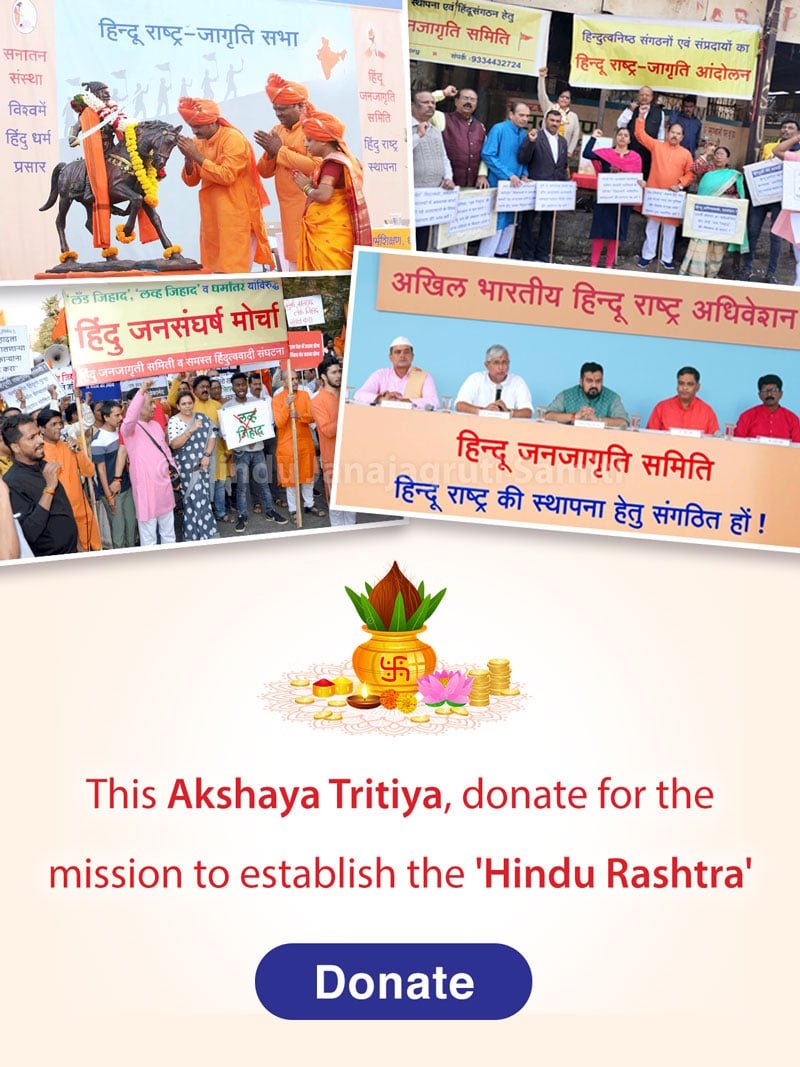Ashwin Krushnapaksha Trutiya,Kaliyug Varsha 5115
 |
The Muzaffarnagar riots in Uttar Pradesh which put the ruling Samajwadi Party on the defensive, and Narendra Modi’s taunt that his State had ‘passed’ him with distinction while the Congress still had to give an account of itself, have driven the latter to revive the contentious Prevention of Communal and Targetted Violence Bill, now slated to be introduced in the Winter Session of Parliament. The coveted prize is the Muslim vote-bank, put into jeopardy since Deoband’s Maulana Mehmood Madani reprimanded the party for trying to instil fear of the Gujarat strongman among Muslims.
The Bill, widely perceived as anti-Hindu, is the brainchild of Sonia Gandhi’s National Advisory Council. It has been opposed by the Bharatiya Janata Party (BJP) and some regional parties, and is certain to be resented by public servants who are liable to be penalised for ‘dereliction of duty’ and ‘breach of communal responsibility’ in the event of targetted violence against a community.
Muzaffarnagar can be a good benchmark against which to judge the presumptions governing the Bill. It is widely known that a young school girl was constantly harassed by a boy from the minority community. Two members of her family confronted the miscreant, who died in the altercation between them; the duo was brutally murdered in retaliation. When the police arrested seven of the alleged assailants, they were ordered by a senior Cabinet Minister of the State to release the men; this triggered a series of group meetings of both communities and the subsequent spiral of violence. How will the proposed Bill apportion guilt and deliver justice to the victims on both sides?
The original version of the Bill, drafted by UPA-I in 2005, was referred to the Parliamentary Standing Committee, which submitted its report in December 2012. Minority Affairs Minister Rehman Khan, who mooted revival of the Bill after the Muzaffarnagar riots, is reportedly busy giving it more teeth. This could intensify opposition to the Bill when finally presented in Parliament this winter.
The extant draft has been resisted because it empowers the Centre to declare an area in a State as “communally disturbed” on its own and send Central forces without the State’s request, thus compromising the federal structure of the Constitution and creating situations of potential confrontation between the Centre and the States. The BJP, Akali Dal, Shiv Sena and Bahujan Samaj Party opposed this as usurping the rights of States.
A contentious provision is transfer of cases outside the State concerned for trial (as happened in Gujarat), ostensibly to protect witnesses. This could establish a dangerous precedent of presuming the entire judiciary of a State as incapable of delivering justice to victims of riots. If riots simultaneously break out in several States (as Maoist violence has affected many at the same time), how feasible will it be to shunt cases, witnesses and lawyers across the country? Who will bear the cost of this exercise? Controversies pertaining to some Gujarat riot victims (who claimed they had not been raped and did not know that this allegation figured in their sworn affidavits which were in English) establishes that it is not proper to leave witnesses and victims to the mercy of NGOs and activists who may have their own agendas, and may tutor their wards to that end.
The essential criticism of the Bill is its flawed conception, which aims to prevent and control targeted violence, including mass violence, against Scheduled Castes, Scheduled Tribes, and religious and linguistic minorities in any State. Large sections of society that do not fall in any of these categories, and might fall prey to communal violence, are denied protection under this legislation.
Worse, it does not extend to Jammu & Kashmir, where Kashmiri Pandits were targetted and driven out of the Valley in the 1990s, and where Hindus of Jammu Province are now in the crosshairs of jihadi elements who want to drive them out of the entire State. This was recently witnessed in Kishtwar, where a private arms factory was generously opened to help miscreants arm themselves against an unarmed populace of anther community. If ever there was a State where citizens need the protection of such legislation, it is Jammu & Kashmir.
As rape and gang rape is one of the specific crimes listed in the Bill, it bears asking if rape will be considered as having occurred only on the statement of an alleged victim, or will have to stand medical scrutiny? Secondly, there is no recognition that a communal conflict could be triggered by the targetting of girls from the majority community, a phenomenon widely known as ‘love jihad’.
As for public servants who are to be held responsible for failing to control a situation, it needs to be mentioned that the proposed Bill offers no protection against political interference in the arrest and prosecution of culprits. The extant Bill places disproportionate emphasis upon the role of public servants (police, civil servants), who are all too often forced to abide by the whims of a political class. Nowhere does the legislation provide for punishment for political interference leading to the release of arrested persons in a riot situation.
The proposed National Authority for Communal Harmony, Justice and Reparation, if retained in the final draft, will likely be a sinecure for unelectable politicians and other cronies of the ruling dispensation. The Authority seems to duplicate the functions of the National Human Rights Commission, National Commission for Minorities, National Commission for Women, National Commission for Scheduled Castes, and National Commission for Scheduled Tribes. A six year term for the Members, along with attendant permanent bureaucracy, seems an entirely avoidable drain on the exchequer in an era of economic meltdown.
The draft proposes to make all offences committed under the Act as cognizable and non-bailable. This is not objectionable in itself, except for the fact that political interference (as seen in Muzaffarnagar) could ensure arrests from a single community, which may even be the victim/aggrieved community. And if culprits who are arrested are promptly released due to political interference, such persons will roam free with impunity throughout the trial and prosecution of the case, and will have ample freedom to tamper with or intimidate witnesses. The whole legislation is thus flawed in conception and certain to be unfair in implementation.
The proposed National Authority / State Authority has been given the power to order further investigation or re-investigation of cases deemed not to have been carried out in a fair, impartial or unbiased manner. But under the Code of Criminal Procedure, the power to order re-investigation is vested only in a competent court, and further investigations also needs court permission. Clearly, the UPA is trying to make a mockery of the established law of the land for petty political gains.
Source : Niti Central

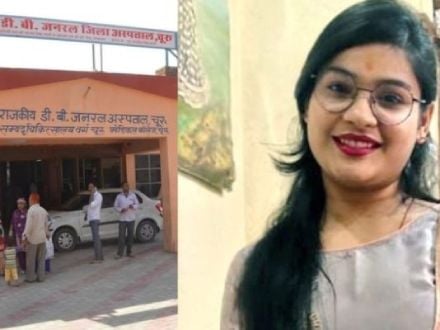 Rajasthan: Woman found hanging at a beauty parlour, Arshad, 3 others booked
Rajasthan: Woman found hanging at a beauty parlour, Arshad, 3 others booked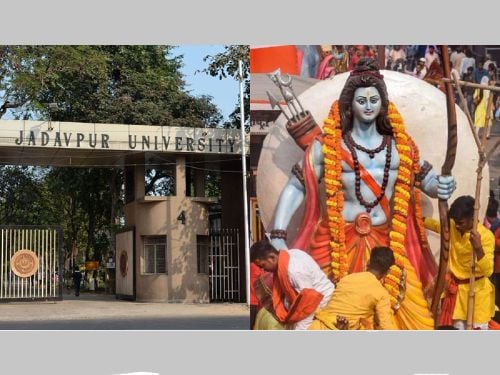 Jadavpur Univ revokes permission to celebrate Ram Navami on campus after granting it
Jadavpur Univ revokes permission to celebrate Ram Navami on campus after granting it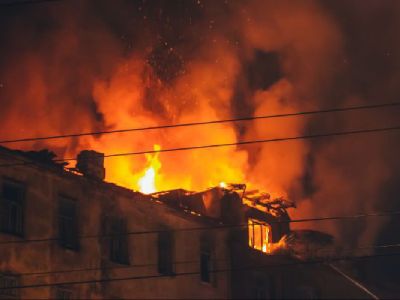 Andhra Pradesh: Farooq kills mentally challenged Hindu man for insurance money
Andhra Pradesh: Farooq kills mentally challenged Hindu man for insurance money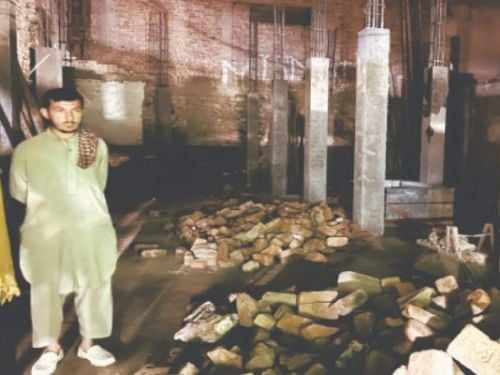 Pakistan: Ancient Hindu temple in Khyber Pakhtunkhwa demolished for commercial complex
Pakistan: Ancient Hindu temple in Khyber Pakhtunkhwa demolished for commercial complex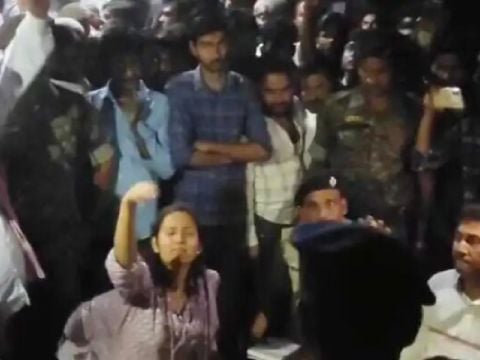 Bihar: Goddess Bhagavati Temple in Araria vandalised and deities damaged
Bihar: Goddess Bhagavati Temple in Araria vandalised and deities damaged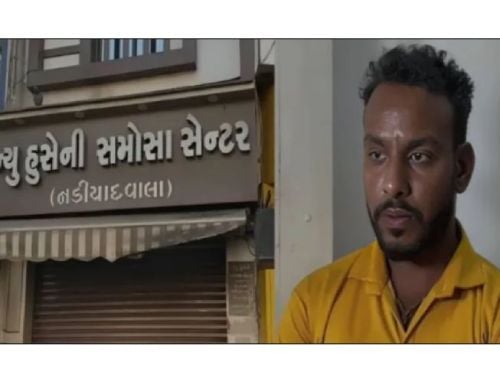 Vadodara: Beef supplier Imran Qureshi arrested in beef-stuffed samosa case
Vadodara: Beef supplier Imran Qureshi arrested in beef-stuffed samosa case